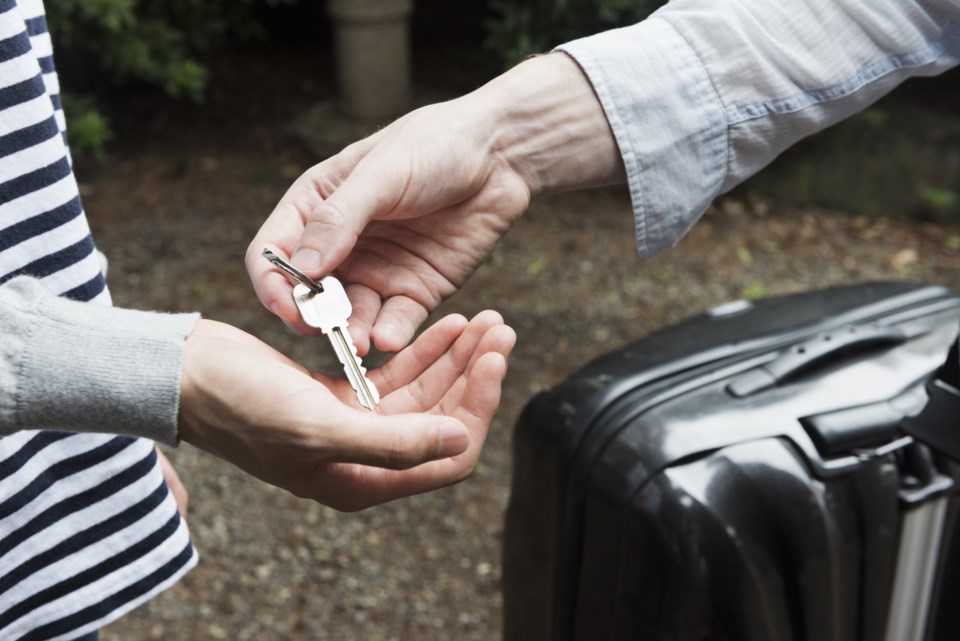When it comes to short-term rentals, the rules of strata corporations can be enforced “beyond” the bylaws of a local government.
That was stated in a March 24 reasons for decision document from the BC Civil Resolution Tribunal for a dispute between a bare land strata located off of Woodland Avenue in the West Howe Sound area of the Sunshine Coast Regional District and the owners of one of that development’s lots.
Tribunal member Kristin Gardner ruled in favour of Strata Corporation BCS 3866 in two of three disputes between the two parties. The disputes involved the use of a portion of a residence in the development as a bed and breakfast operation and $800 in fines issued for bylaw violations. A dispute over a requirement to remove a fence on that same strata lot, also determined to be non-compliant with strata bylaws, was dismissed.
Background
The document outlined that the owners in question purchased lot 14 in a rural residential zoned (RU1) 22 lot development in May 2021. Shortly thereafter, they opened a bed and breakfast operation using one of their home’s bedrooms and advertised that service on various online platforms. On August 31 of that year, a neighbour advised one of the lot’s co-owners that the strata’s bylaws prohibited short-term rentals and later filed a formal complaint to the strata council about the bed and breakfast operation. After providing notice and a hearing related to the complaint to the lot owners, the strata imposed fines against them for breaching strata bylaw 3(3). That regulation reads that an owner must use their lot “exclusively as a private residential property for a single-family residential dwelling”.
The lot owners took the position that as there were no strata bylaws restricting rentals or expressly prohibited use of a lot for business purposes, their bed and breakfast operation should be permitted. They also argued that a Sunshine Coast Regional District bylaw permitted “short term rental” as an auxiliary use in the RU1 zone, if the short-term rental operator resides on the property while the service is offered, which they did.
The decision
While Gardner acknowledged that both arguments put forward by the owners of lot 14 were factual, she found that “a strata corporation is entitled to restrict a strata lot’s use beyond what a municipal or regional district bylaw may permit, through the strata’s bylaws.”
In relation to the lack of a strata rule specifically restricting business operations, she wrote “I find the only reasonable interpretation of the wording in bylaw 3(3) that a strata lot be used “exclusively as a private residential property”, is that using a strata lot even partly for a public, business, professional, or commercial purpose is not a permitted use....I find that booking and accepting payment for the public to stay in a strata lot is clearly using the strata lot for a business or commercial purpose, in breach of bylaw 3(3).”
The fines in question were issued by the strata corporation at a rate of $50 per week starting on Dec. 20, 2021. The tribunal ordered that within 30 days of its decision, one of lot 14’s co-owners must pay the strata the $800 in fines, $16.26 in pre-judgment interest and the strata’s $125 tribunal filing fee.
How the tribunal works
BC’s Civil Resolution Tribunal is Canada's first online tribunal for resolving strata and other types of civil disputes for claims involving amounts up to $5,000. It encourages a collaborative approach to dispute resolution, using negotiations and facilitation without the need for a lawyer or to attend court. If required, dispute hearings are conducted by tribunal members and decisions can be enforced in the same way as court orders.


